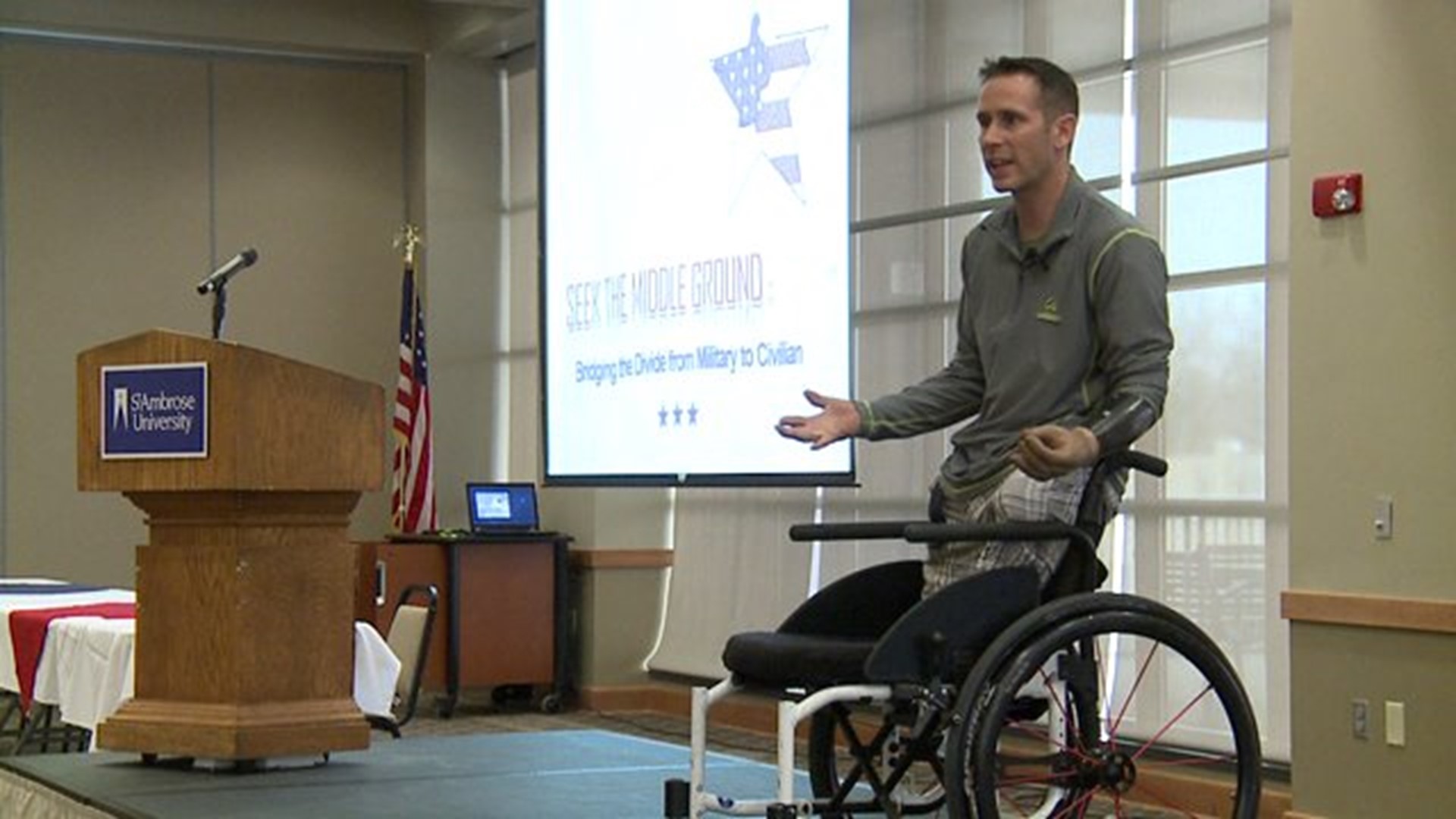On Wednesday, decorated war veteran, Bryan Anderson, spoke to a roomful of veterans at St. Ambrose University for the Eastern Iowa/Western Illinois Veterans Conference.
The event, titled "Seek the Middle Ground: Bridging the Divide from Military to Civilian," was at the Rogalski Center on campus.
After shipping out on September 11, 2001, Anderson served as a sergeant for the military police in Iraq. He served two tours of duty until 2005, when he was injured by an Improvised Explosive Device (IED) that took off both of Anderson's legs and left hand.
Now, after going through 13 months of rehabilitation, Anderson travels the country to speak at events and VA Centers on perseverance, determination, and returning to civilian life.
"A lot of veterans feel stuck in their situation," said Anderson. "They just need to realize that they're not, there's a lot of options for veterans out there."
"To see a guy like me out there doing so many different things hopefully can show them that, regardless whatever their hinge is, they can still do it too," Anderson said.
He said he's seen major improvements in the ways veterans are treated, especially the increased awareness for what they go through overseas and back on American soil, like the new movie American Sniper.
"American Sniper is to date, the most accurate portrayal of what it was like to be a soldier over there," said Anderson. "The split second decisions that we're faced with, how savage our enemies really were, the issues it causes for the soldier at home and their family members. It's a very, very accurate movie."
Other veterans at the conference said that while things have improved, there's still a long way to go in helping veterans today.
"Typically, people don't really understand what's going on overseas in Iraq and Afghanistan," said Chad Harvey, a navy veteran who served from 1997-2002. "They don't really know how to be diligent with veterans or how to give them the respect that they deserve, so it's hard for them to transition because they don't really know what to expect and people don't really know how to treat them."
"If more people would enlist, they would realize what we've accomplished and what we've done," said Jim Bell, an army veteran from the Vietnam War Era. "I think there would be a whole heck of a lot more support than what there is even now [if more people enlisted.]"
Anderson said as he sees the U.S. getting more involved in the fight against ISIS, he is hesitant to support sending more troops overseas, because he knows the toll the war on ISIS will take on the next round of veterans.
"I almost feel that we've given [ISIS] so many chances that maybe it's time to just, you know where ISIS is, just blanket bomb it," said Anderson.
The number one thing mentioned by all the veterans at the conference was how far a simple thank you could go.
"Just to go up to them and say 'thank you for your service, thank you for your time, we appreciate what you do for us,'" said Harvey. "It really goes a long way to just say thank you for your service, it really does a lot for us."

